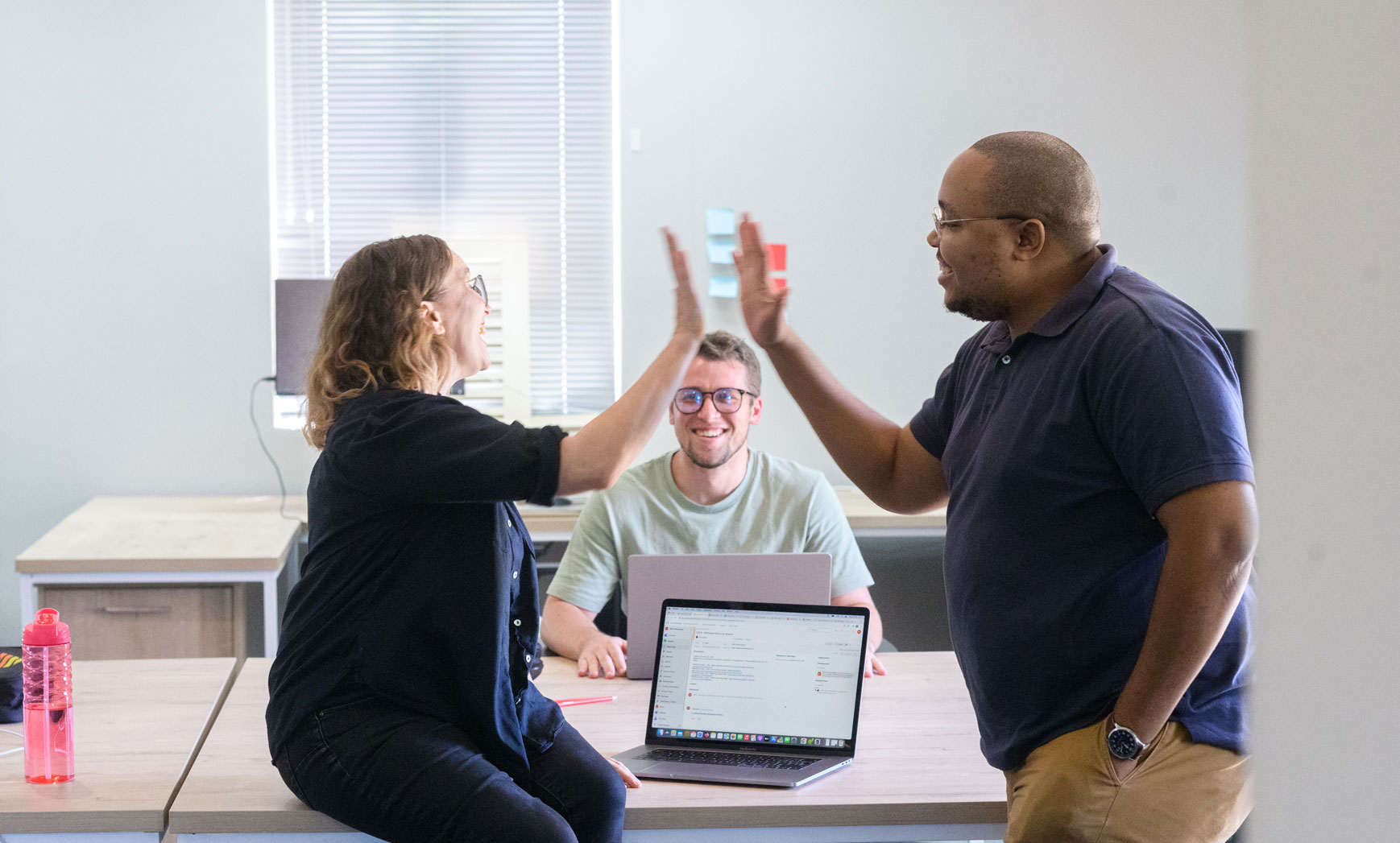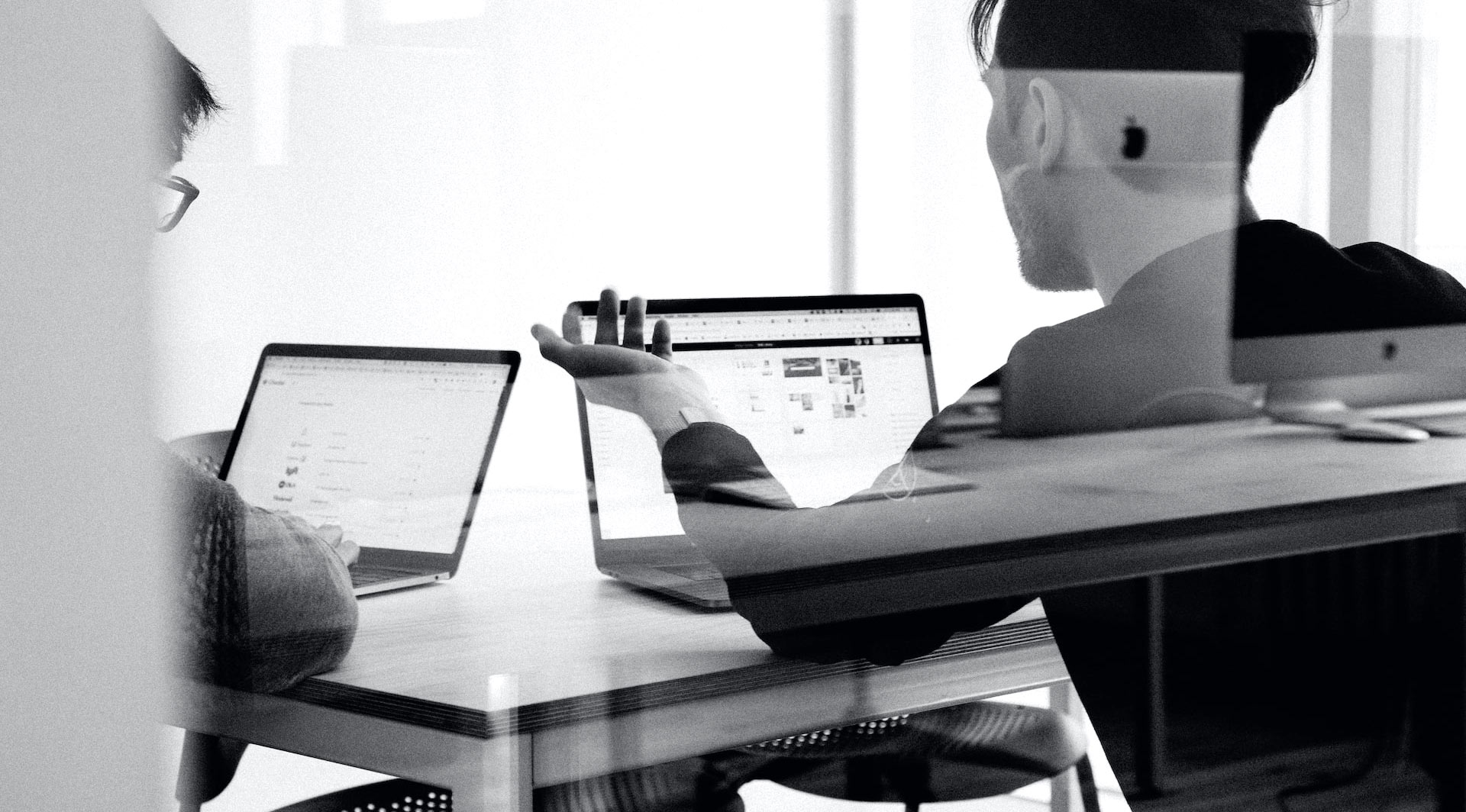Software developers are a very unique breed of humans, and the Polymorph devs are no exception. They have caffeine running through their veins, and debugging is a daily workout. We celebrate them this way, and we love to give them the space and freedom to live out their passion for solving problems and discovering and implementing new solutions.
Developers tend to look at the world around them differently. As out-of-the-box thinkers, their mathematician’s mindset computes problems into code, their designer’s vision interprets patterns into concepts, and their engineer’s scrupulosity calibrates minutiae with concentrated accuracy. For developers, looking at the world is not passivity but an unprecedented level of exploration.
With this in mind, we asked tech wizard Caleb Linden, who joined Polymorph roughly six months ago as a senior software developer, to tell us more about the day-to-day creative process involved in building custom software. If his resume wasn’t impressive enough, his enthusiasm most definitely is.
1. When did you join Polymorph as Software Developer?
I started with Polymorph in June 2022 after completing a pretty cool interview process (and I got a mug to prove it!). Part of the interview process was showing my coding chops by writing code to solve a software problem and running it against test scenarios using HackerRank. I then had to defend the logic of my solution with the interview panel.
2. When and where did your software development journey start?
I started working as a software developer in 2016 after completing a degree in Information Science (Multimedia) and Information Technology, which is dead centre between software and computer science and digital media design. With this degree, I could pursue full design, UI, UX, digital media creation videos, gaming or even pure computer science, just building systems.
I’ve always leaned more towards the media side of things, a choice that was solidified during a research project I had to complete for one of my modules. We had to build a mobile app as part of a group project, and I ended up building the entire app. This was my big “a-ha!” moment when I knew this was it – this is what I wanted to do with my life. To make a long story short, this led me to my first job as a front-end developer, building advanced apps for Android, desktop and web platforms that emphasised user interaction.
I continued in this role for about 5 years when, yearning to do more, I got into full-stack development on the side. So I started building full systems on the side as a freelancer and enjoyed it so much that I decided I wanted more of that in my actual day-to-day work.
3. What is the main difference between working for Polymorph compared to your past experience working as a software developer?
Well, the first word that popped into my head was “autonomy”. Working at Polymorph, I actually have the freedom to be a developer. I have the freedom to solve problems and to introduce new ideas and solutions as opposed to being told, “this is how you do it. It’s always been done this way, and we’ll continue doing it this way”. It also goes deeper than simply introducing new ideas and being heard – if the solution makes sense, you have the backing or the technical team to implement it.
4. Can you take me through a typical two-week sprint?
We do sprints and iterations, and the goal is to prioritise which tasks need to be completed in the upcoming sprint, refine everything in the backlog and make sure it’s ready to be picked up. Then we have a technical planning session where we go through the work and plan what we will do during the sprint, and we fine-tune that.
We also have daily stand-ups where we align ourselves for the day. This is where we check in on a daily basis to chat about what we did yesterday and what we’ll do today. We also discuss any issues that are blocking us and get extra insights. What is super cool about this is that the client product owners are part of these daily sessions. So they are fully aware, each step of the way, of what we’re doing and where we’re at with a project. And because they’re working directly with us all the time, we can constantly align with what they want to make sure that they’re happy with what we’re doing. And then it’s dev time!
Our two-week sprint concludes with a sprint review. During the sprint review, we show the client everything we’ve accomplished during the sprint, give them feedback or demos, whatever the project requires, and then they have a chance to provide feedback. This is followed by a retrospective review where we identify areas where performance could have been improved and celebrate successes and can be either structured (what-went-well) or take the form of a candid conversation about the last two weeks.
What makes the daily sprints and the two-week reviews such a winning combination is the fact that we’re not simply giving feedback once every two weeks and then say, “see you again in two weeks to show you what we’ve done.” This also means that when things change, we can address it immediately, saving time and unnecessary redos. Of course, this means you have to be open to change which is the whole point of Agile. But, in the end, it helps you to build a better (and hopefully long-term!) relationship with the client.
5. What do you enjoy most about working at Polymorph?
I’ve mentioned the autonomy earlier, but another pull factor is having the opportunity to work on new projects and with different clients all the time. And that is one of the big reasons why I joined and why I’m excited to be at Polymorph — because I wanted to work on different projects and with more than one client.
6. Working remotely, how do you get to feel like you are part of a team?
Working remotely can be a challenge when it comes to feeling like part of a team, but from my experience so far, Polymorph has a great recipe to keep engagement high and bolster a sense of belonging. For one, we have periodic team days where everyone who works remotely gets to come together virtually. This provides the opportunity for face-to-face interaction and collaboration, as well as some much-needed time in the company of co-workers.
They also actively listen to my feedback and take it seriously. This shows me that they value my voice and my insights which makes for a very inclusive working environment no matter where we are in the country. Additionally, they take action on feedback when it makes sense, which really increases my motivation and job satisfaction – It’s great to feel heard and valued.
7. What do you do if you are not in front of your computer?
What do you mean “not in front of my computer”? Just kidding, I do like sports; I’m an avid skater, and I used to do parkour a lot. Now I just do it occasionally, but it’s still fun to learn and practice something outside of development.
8. Bonus question: Star trek or Star wars?
I’m not that guy (laughter). I’d say Star Wars. Just because I’ve watched Star Wars. But I’ve always been that kid who, against all odds, waited for his letter from Hogwarts. It never came, but I’m still a big Harry Potter fan!



